Sustainable Synthetic Methodology
Synthetic chemistry lies at the heart of our search for better medicines for an ageing population, safer agrochemicals to aid food production for an increasing population, and the need for ever smarter advanced materials for new and energy efficient technologies. However, this synthetic chemistry must be safe, efficient and above all, sustainable. A number of our projects are aimed at developing new routes, particularly to bioactive compounds, that are based on sustainable methodolgies:
- XH activation by carbene insertion reactions.
- precious metal free coupling reactions.
- flow chemistry.
- solar photochemistry.
- catalytic oxidation methods in organic synthesis.
Natural Products
Nature continues to provide us with challenging structures to test our ideas about chemical reactivity and synthesis. Natural products have fascinating and complex structures that have been evolutionary selected over millions of years. Since they have emerged via biosynthesis by proteins, they have prerequisites for binding to proteins and to penetrate cell membranes, and therefore often have interesting medicinal properties. Hence it is no surprise that in cancer and infectious disease, over half of the clinically used drugs are of natural origin. We are interested in the synthesis of a number of biologically active marine and terrestrial natural products including cyclic peptides, thiopeptide antibiotics, redox active quinones, and quinone ansamycin antibiotics. Some examples of current interest to the group are shown below.
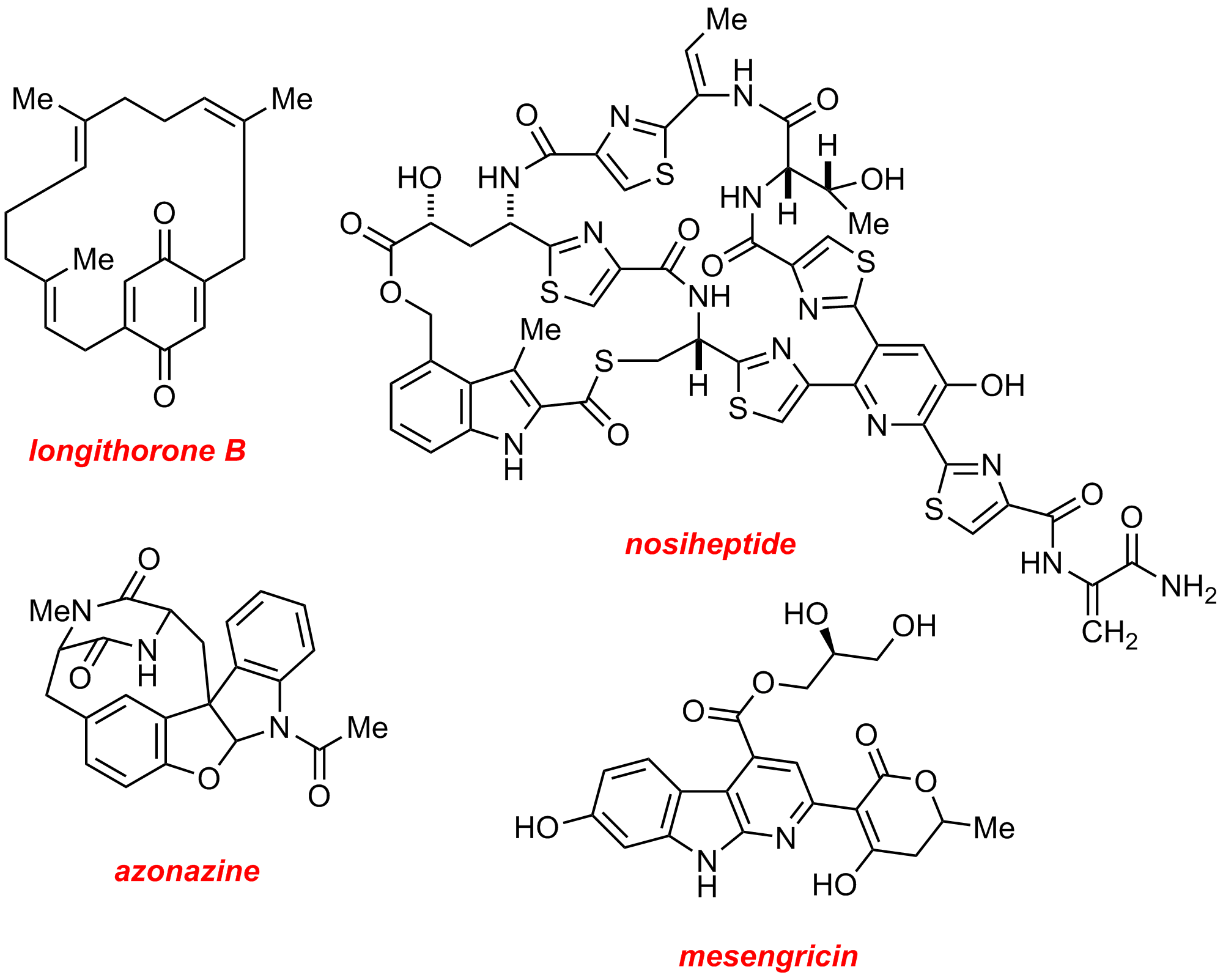
Molecular targeting of cancer, malaria and neurodegeneration
As mentioned above, many natural products possess powerful medicinal properties, and these can be used to guide the synthesis of potentially useful analogues for the treatment of disease. We are particularly interested in anticancer and antimalarial compounds that act by novel mechanisms such as the inhibition of the quinone reductase enzymes (NQO1 and NQO2) and the molecular chaperone Hsp90. Compounds of interest include heterocyclic quinones, macrocyclic lactones and ansaquinones. Biological evaluation of our novel compounds is carried out in collaboration with scientists in the UK and USA.
- anticancer agents based on heterocyclic quinones.
- design of substrates and inhibitors of NADH quinone oxidoreductase (NQO1, NQO2).
- role of other redox enzymes in disease, e.g. thioredoxin, indoleamine dioxygenase (IDO).
- inhibitors of heat shock proteins.
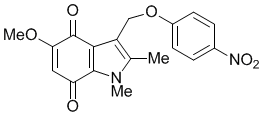 ES936, a potent inhibitor of the enzyme NQO1 |
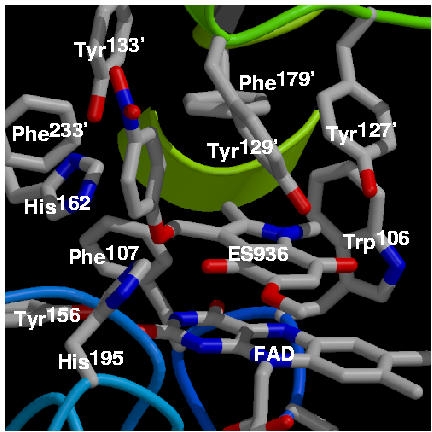 The inhibitor ES936 bound in the active site of NADH quinone oxidoreductase (NQO1) |
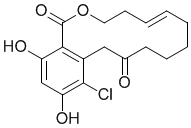 NP261, an analogue of the natural product radicicol, and a potent inhibitor of the enzyme Hsp90 |
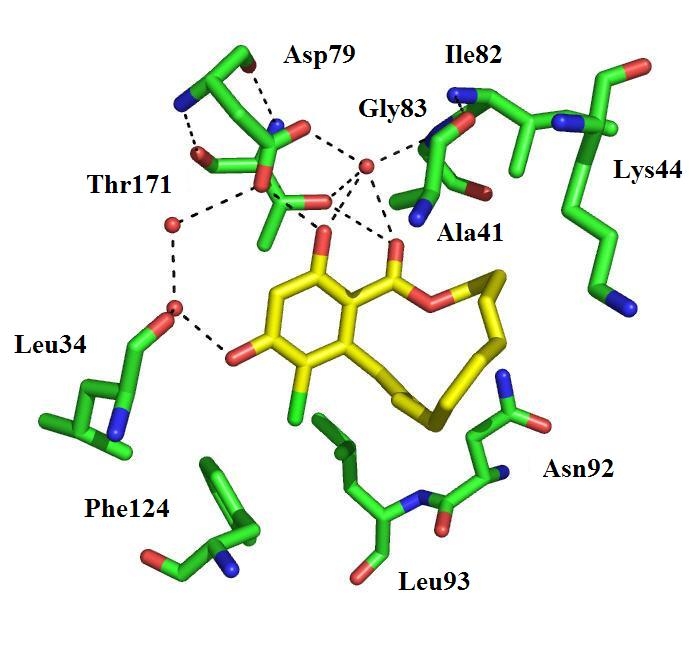 The inhibitor NP261 bound in the active site of heat shock protein 90 (Hsp90) |
